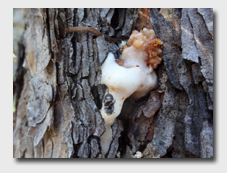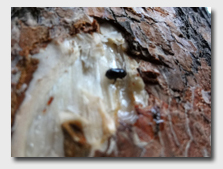The Birds and Bees - specific vs. nonspecific pesticides
An important addition to 21st-century agricultural technology is not only the recognition of the deleterious effects of nonspecific chemical insecticides and herbicides. Those are becoming obvious with the worldwide deterioration of our soils, reduction of production and increasing pollution. It is not only important to realize the harmful effects that these chemicals have on humans and animals, but also the plants we eat. The Library of Congress estimates that over 40,000 tons of DDT are being used worldwide which equals more than a pound for every human being on earth.
As John Robbins points out in his book, Diet for a New America, the environmental Defense fund estimates that the American people today have collectively some 20 tons of DTT in their bodies–which works out to 1 1/2 gallons per person.
At our disposal is the greatest natural insect control known to mankind.
As John Robins points out in his book, "A Brown Thrasher can eat 6,180 insects a day.
The swallow will devour 1,000 leaf hoppers in 12 hours.
A house wren will feed 500 spiders and caterpillars to its young during
one summer afternoon.
A pair of flickers considers 5,000 ants a mere snack.
A Baltimore Oriole eats 17 caterpillars a minute."
These, natural insect predators are what most insecticides kill indiscriminately.
Our bee, as well as our bat population, so helpful in the growth of healthy plants, is now being unnecessarily reduced or eliminated. This is no longer necessary in today's world of advanced technology. Today's knowledge is organic rather than chemical, with long term results and is in tune with natural production of healthy food.
Usually the heavy cost of insecticides is a trade-off with the cost of specifically designed organic approaches. There are biological products now being marketed which can specifically target destructive pests, leaving alone the other natural predators, so helpful to the well-being of small farms and forests.
 |
Biological products are being developed which can specifically kill one or more targeted insects without harming bees, butterflies, insects. birds or nematodes. One organic product, for instance, is specifically lethal to the Japanese beetle with 100% success. |
| It has no negative effect to any other living thing, but will also be carried by the Phloem of the trees over which it is sprayed enlivening the forest, whose decaying state was a primary cause of the infestation in the first place. |  |
What we call a pest is what nature uses to to recycle regrowth. If the plant or tree is vitally alive it is no longer a source for what we call "pests". The use of chemical insecticides in today's world is like electrocuting the warden while opening the prison doors in order to reduce crime. It is not only not necessary but, with the increasing cost of insecticides, no longer financially advisable, especially in the long term.
Charles Hinkley





